发展论坛4 (Development Forum 4)
Swarm Intelligence
群体智能
Chair: Haibin Duan (Beihang University, China)
Panelists:
Yaochu Jin (Westlake University, China)
Yanming Fan (Shenyang Aircraft Design &Research Institute, AVIC, China)
Zhigang Zeng (Huazhong University of Science and Technology, China)
Haibin Duan (Beihang University, China)
Junzhi Yu (Peking University, China)
Hao Fang (Beijing Institute of Technology, China)
Abstract: The objective of this development forum is to provide a platform for researchers and practicing engineers to exchange their results and ideas on topics closely related to swarm intelligence. It will also provide an opportunity to younger graduate students to identify open problems for their research and interact with active researchers in this field.
Swarm intelligence is the discipline that deals with natural and artificial systems composed of many individuals that coordinate their activities using decentralized control and self-organization. It has been observed a long time ago that some species survive in the cruel nature taking the advantage of the power of swarms, rather than the wisdom of individuals. The individuals in such swarm are not highly intelligent, yet they complete the complex tasks through cooperation and division of labor and show high intelligence as a whole swarm which is highly self-organized and self-adaptive. In particular, swarm intelligence focuses on the collective behavior that result from the local interactions of the individuals with each other and with their environment. Six professors, who are Prof Yaochu Jin, Prof Yanming Fan, Prof Zhigang Zeng, Prof Haibin Duan, Prof Junzhi Yu, and Prof Hao Fang, will present their new insights and progresses in swarm intelligence theory, modelling, techniques and typical applications in this development forum.
Speaker: Yaochu Jin, Westlake University, China
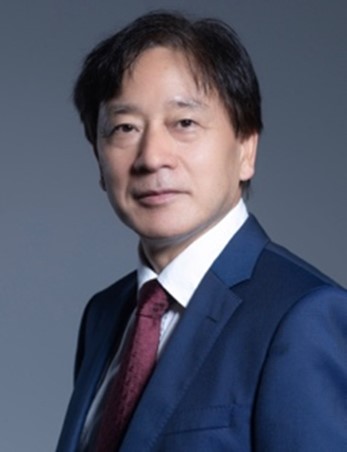 Title: Biological and Synthetic Collective Intelligence
Title: Biological and Synthetic Collective Intelligence
Abstract: This talk starts with a brief introduction to biological collective intelligence, from the macroscopic level such as natural evolution, to the mesoscopic level such as swarm behaviors including ant colonies, fish schools and bird flocking, and to the microscopic level such as quorum sensing and morphogenesis. Following this, we provide examples of synthetic collective intelligence, i.e., computational algorithms that emulate biological collective intelligence for optimization and self-organization, focusing on the relatively less investigated microlevel collective intelligence, where gene regulation plays a pivotal role. We discuss the similarity between biological collective intelligence at different scales and conclude the talk with a brief discussion of remaining challenges and future directions in emulating biological collective intelligence.
Yaochu Jin is Chair Professor for AI with the School of Engineering, Westlake University, Hangzhou, China. He was an Alexander von Humboldt Professor for Artificial Intelligence endowed by the German Federal Ministry of Education and Research, with the Faculty of Technology, Bielefeld University, Germany. He is also a Distinguished Chair, Professor in Computational Intelligence, Department of Computer Science, University of Surrey, Guildford, U.K. He was a “Finland Distinguished Professor” of University of Jyväskylä, Finland, “Changjiang Distinguished Visiting Professor”, Northeastern University, China, and “Distinguished Visiting Scholar”, University of Technology Sydney, Australia. His main research interests include multi-objective and data-driven evolutionary optimization, evolutionary multi-objective learning, trustworthy AI, and evolutionary developmental AI.
Prof Jin is presently the President of the IEEE Computational Intelligence Society and the Editor-in-Chief of Complex & Intelligent Systems. He was named by the Web of Science as “a Highly Cited Researcher” since 2019. He is a Member of Academia Europaea and Fellow of IEEE.
Speaker: Yanming Fan Shenyang Aircraft Design &Research Institute, AVIC
Title: The Nature and Characteristics of Swarm Intelligence and Its Applications in UAV Swarm
Abstract: Through years of researches, a clear definition of “swarm” has been proposed, the nature and characteristics and functions of “swarm” have been expounded, a classification method of “swarm” has been put forward, the features and intelligence attributes and applications of several animal groups have been discussed, the possible applications of swarm intelligence in unmanned machine swarm, specially in UAV swarm, have been discussed and proposed.
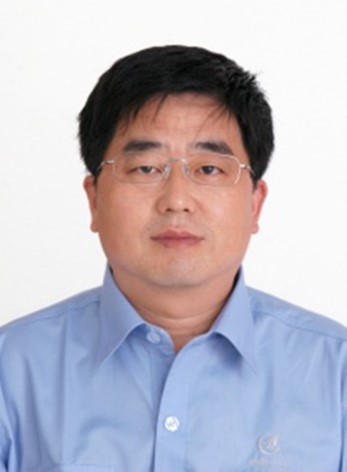 Yanming Fan is, professor/doctoral supervisor, the chief technical expert of Shenyang Aircraft Design & Research Institute AVIC, and the adjunct professor of BUAA and NUAA, awarded special government allowance of the State Council. He received his B.S. and M.S. degrees in Automatic Control from NUAA, Ph.D. degree in aircraft design from Chinese Aeronautical Establishment in 1985, 1988 and 2014 respectively. He is currently the deputy director of Guidance, Navigation and Control Committee of the Chinese Society of Aeronautics & Astronautics, the deputy director of the Technical Committee on the Unmanned Aerial Systems Autonomous Control of the Chinese Association of Automation, the member of the Chinese Simulation Society, etc. He has been engaging in the research and system development of the fighter flight control technology since 1988. He is the main participant/pioneer in the start-up stage of digital Fly-By-Wire technology in China and the main leader in the development stage.
Yanming Fan is, professor/doctoral supervisor, the chief technical expert of Shenyang Aircraft Design & Research Institute AVIC, and the adjunct professor of BUAA and NUAA, awarded special government allowance of the State Council. He received his B.S. and M.S. degrees in Automatic Control from NUAA, Ph.D. degree in aircraft design from Chinese Aeronautical Establishment in 1985, 1988 and 2014 respectively. He is currently the deputy director of Guidance, Navigation and Control Committee of the Chinese Society of Aeronautics & Astronautics, the deputy director of the Technical Committee on the Unmanned Aerial Systems Autonomous Control of the Chinese Association of Automation, the member of the Chinese Simulation Society, etc. He has been engaging in the research and system development of the fighter flight control technology since 1988. He is the main participant/pioneer in the start-up stage of digital Fly-By-Wire technology in China and the main leader in the development stage.
As the chief designer of flight control system, he has independently developed the flight control systems and flight training simulators for land-based aircrafts, carrier-based aircrafts, and high-end UAVs. He has been awarded the National Science and Technology Progress Grand Prize and second Prize, National Defense Science and Technology Progress first Prize and second Prize, National Defense Technology Invention second Prize, and Military Technology Invention first Prize. He has been authorized 15 national invention patents, authored more than 100 research reports, published more than 40 papers in domestic and foreign journals, published 1 monograph and translated 2 books.
Speaker: Zhigang Zeng, Huazhong University of Science and Technology, China
Title: The research on UAV and USV Cross Domain Collaboration
Abstract: The marine environment is complex and ever-changing, with high randomness in mission objectives. The use of UAV or USV alone cannot meet the requirements of complex missions. The autonomous patrol and monitoring tasks in complex sea environments, fully combining the respective advantages of UAVs and USVs, and achieving long-term, large-scale, and multi heterogeneous UAV and USV unmanned system collaboration, are of great significance for China's practical needs in water pollution warning, emergency rescue, invasion and expulsion. This report focuses on the technical requirements of target recognition, environmental perception, information fusion, autonomous control, and formation collaboration for UAV and USV unmanned systems. It introduces the latest research progress of our team in areas such as high-altitude, long-distance, weak and small targets detection, positioning and recognition of UAVs, multi-source information fusion perception and path planning control of USVs, precise autonomous takeoff and landing of UAV and USV collaboration, as well as the demonstration system of UAV and USV intelligent collaboration.
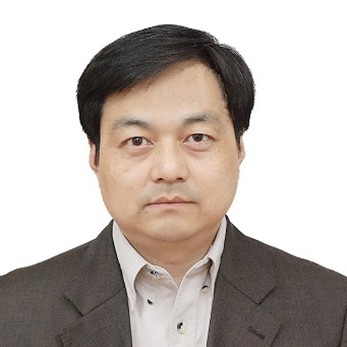 Zhigang Zeng, IEEE Fellow, Dean of the School of Artificial Intelligence and Automation at Huazhong University of Science and Technology, Director of the Key Laboratory of Image Information Processing and Intelligent Control of the Ministry of Education. Obtained a Ph.D. in System Analysis and Integration from Huazhong University of Science and Technology in June 2003. Conducted postdoctoral research at the Chinese University of Hong Kong and the University of Science and Technology of China.
Zhigang Zeng, IEEE Fellow, Dean of the School of Artificial Intelligence and Automation at Huazhong University of Science and Technology, Director of the Key Laboratory of Image Information Processing and Intelligent Control of the Ministry of Education. Obtained a Ph.D. in System Analysis and Integration from Huazhong University of Science and Technology in June 2003. Conducted postdoctoral research at the Chinese University of Hong Kong and the University of Science and Technology of China.
He is currently a Professor with the School of Artificial Intelligence and Automation, Huazhong University of Science and Technology. His current research interests include brain-like intelligence, computational intelligence, autonomous unmanned systems, stability analysis of dynamic systems, pattern recognition and associative memories. He was funded by the 2021 Science and Technology Innovation 2030-Major Project of the Ministry of Science and Technology, the National Natural Science Fund of China for Distinguished Young Scholars, the Technology Innovation Project of Hubei Province of China, etc. He has published more than 300 journal articles including Nature Reviews Electrical Engineering, Proceedings of the IEEE, IEEE Transactions on Pattern Analysis and Machine Intelligence. Served as an editorial board member for IEEE Transactions on Neural Networks, IEEE Transactions on Cybernetics, IEEE Transactions on Fuzzy Systems, Cognitive Computation, Neural Networks, Applied Soft Computing, Acta Automatica Sinica, Control Engineering, Systems Engineering and Electronics, and Control Theory and Applications. Received awards such as the Ministry of Education Natural Science Award (First Prize), Hubei Province Natural Science Award (First Prize), Hubei Province Science and Technology Progress Award (First Prize), and the National Science and Technology Progress Award (Second Prize).
Speaker: Haibin Duan, Beihang University, China
Title: Incentive and Convergence in Bird Flock Intelligence
Abstract: Nature is a rich source of human creativity. On the basis of a series of flight experiments on bird flock behavior in nature, the internal mechanism of different behavior phenomena of birds is analyzed through collecting and processing the experimental data of different flight behavior of birds, and the bird flock intelligence incentive and convergence behaviors are modeled. The positive and negative feedback mechanism model of bird flock intelligence emergence is constructed. The mapping relationship between the bird flock intelligence incentive and convergence and the flight of unmanned aerial vehicles (UAVs) is studied. Inspired by the different behavior models of bird flock intelligence incentive and convergence, the UAV cooperative searching method based on the bird flock intelligence incentive and the UAV swarm countermeasure method based on the bird flock intelligence convergence are proposed. The recent progresses in incentive and convergence in bird flock intelligence will also be highlighted.
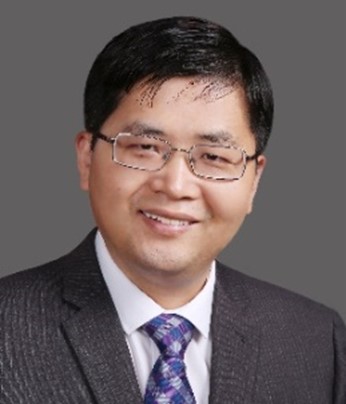 Haibin Duan is currently a professor with the School of Automation Science and Electrical Engineering, Beihang University (BUAA), Beijing, China. He is a Fellow of Chinese Association of Automation (CAA).
Haibin Duan is currently a professor with the School of Automation Science and Electrical Engineering, Beihang University (BUAA), Beijing, China. He is a Fellow of Chinese Association of Automation (CAA).
He received the National Science Fund for Distinguished Young Scholars of China in 2014. He was also enrolled in the Chang Jiang Scholars Program of China in 2018, Scientific and Technological Innovation Leading Talent of “Ten Thousand Plan”-National High Level Talents Special Support Plan in 2017, and Top-Notch Young Talents Program of China in 2012, Program for New Century Excellent Talents in University of China in 2010, and Beijing NOVA Program in 2007.
He is the director of Technical Committee on Guidance Navigation and Control (TCGNC), Chinese Society of Aeronautics and Astronautics (CSAA), and the director of Technical Committee on Unmanned Aerial Systems Autonomous Control (TCUASAC), Chinese Association of Automation (CAA). He is the Editor-in-Chief of Guidance, Navigation and Control, deputy Editor-in-Chief of Acta Automatica Sinica, Associate Editor of the IEEE Transactions on Cybernetics, IEEE Transactions on Circuits and Systems I: Regular Papers and IEEE Transactions on Circuits and Systems II: Express Briefs. He is the steering general chair of International Conference on Guidance, Navigation and Control (ICGNC). He has authored or coauthored more than 90 publications and 4 monographs. His current research interests are bio-inspired intelligence, and unmanned systems swarm autonomous control.
Speaker: Junzhi Yu, Peking University, China
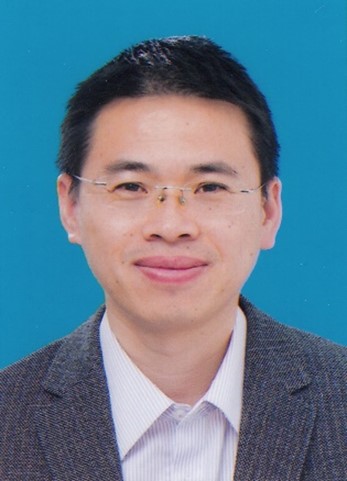 Title: Modeling and Control for Collective Intelligence in Underwater Biomimetic Robotic Fish
Title: Modeling and Control for Collective Intelligence in Underwater Biomimetic Robotic Fish
Abstract: Many organisms in nature show the group attributes of orderly organization, evident division of labor, and mutual cooperation, demonstrating the outstanding collective intelligence, which provides a lot of inspiration for the research of unmanned system clusters. This report focuses on the group modeling and control of unmanned systems based on underwater biomimetic robotic fish. According to the progressive relationship from “learning fish school” to “imitating fish school” to “integrating into fish school”, the representative results of the team in recent years in the direction of imitating fish school intelligence will be shared, involving fish school behavior modeling, cooperative formation control, robotic fish inducting biological fish, and so on. At the end of the report, the development prospect of underwater collective intelligence will be prospected, and the corresponding research plan will be introduced.
Junzhi Yu (Fellow, IEEE) received the BE degree in safety engineering and the ME degree in precision instruments and mechanology from the North University of China, Taiyuan, China, in 1998 and 2001, respectively, and the PhD degree in control theory and control engineering from the Institute of Automation, Chinese Academy of Sciences, Beijing, China, in 2003. From 2004 to 2006, he was a postdoctoral research fellow with the Center for Systems and Control, Peking University, Beijing. In 2006, he was an associate professor with the Institute of Automation, Chinese Academy of Sciences, where he became a full professor in 2012. In 2018, he joined the College of Engineering, Peking University, as a tenured full professor. His research interests include intelligent robots, motion control, and intelligent mechatronic systems.
Speaker: Hao Fang, Beijing Institute of Technology, China
Title: Self-Organizing Swarm Behavior and Autonomous Intelligent Cooperative Control
Abstract: In nature, flocks of birds, schooling of fish, and human societies all exhibit various forms of self-organizing swarm behavior. Such behavior enables swarm to adapt synergistically to natural challenges such as complex environments, adversarial conditions, limited cognition, and dynamic tasks. Inspired by self-organizing swarm behavior, this report will present the intrinsic mechanisms of typical self-organizing swarm behaviors from the perspectives of distributed control and optimization. These swarm behaviors include self-organizing topology construction, self-organizing formation emergence, self-organizing social-force generation, self-organizing stress response, and self-organizing exploration-exploitation trade-off. The mechanisms will be applied to the autonomous intelligent cooperative control of unmanned systems to enhance the capabilities of swarm cooperation in practical applications and provide a reference for further research.
 Hao Fang received Ph.D. degrees from Xi’an Jiaotong University in 2002. He held two Post-Doctoral appointments at the INRIA/France Research Group of COPRIN and the LASMEA (UNR6602 CNRS/Blaise Pascal University, Clermont-Ferrand, France). Since 2011, he has been a Professor with the Beijing Institute of Technology, Beijing, China. His current research interests include multi-agent system, autonomous robot, and distributed SLAM.
Hao Fang received Ph.D. degrees from Xi’an Jiaotong University in 2002. He held two Post-Doctoral appointments at the INRIA/France Research Group of COPRIN and the LASMEA (UNR6602 CNRS/Blaise Pascal University, Clermont-Ferrand, France). Since 2011, he has been a Professor with the Beijing Institute of Technology, Beijing, China. His current research interests include multi-agent system, autonomous robot, and distributed SLAM.
He won the Second Prize of National Natural Science Awards in 2014, First Prize of Natural Science Award of the Ministry of Education in 2022 and 2013, First Prize of Technological Invention of the Ministry of Industry and Information Technology in 2020.
He is Member of Technical Committee on Control Theory and serves as secretary-general of Multi-Agent Cooperative Control Group of TCCT. He is the Associate Editors-in-Chief of Control Theory & Applications, editorial board member of Unmanned Systems, Journal of Systems Science and Mathematical Sciences.